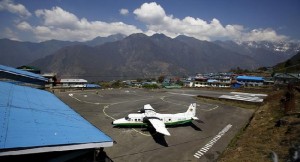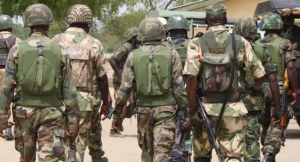 |
| Shock: Mum Esther Hope with Lily when she was two months old. |
A woman who was told she was constipated gave birth to a baby 20 seconds later on a hospital trolley.
Esther Hope believed her abdominal cramps and back pain was nothing more than constipation and was prescribed laxatives by a doctor.
But after doubling over in pain she was rushed to hospital where her waters broke.
Healthcare assistants still insisted it was “just her body getting ready to go to the toilet” and she was left alone on a hospital trolley - but 20 seconds later gave birth to her beautiful daughter Lily Hope-Moore.
Doctors came back to check on the 23-year-old only to find her cradling her newborn baby .
She said: "I knew it was a baby as soon as I realised it was coming from the wrong place.
"I felt her head and screamed at my dad to get a nurse.
"Within seconds of him leaving the room I delivered her.
"I couldn't believe she was mine. I didn't know what to do, I was hysterical."
"I was in total shock," she continued. "Having a baby couldn't have been further from my mind. I'd had the contraceptive injection.
"I just thought I had a 'food baby' because I suffer from Irritable Bowel Syndrome.
"I worked 36 hours the week before and went to a wedding where I drank champagne.
"I even went to Thorpe Park and went on the all the rides. I had no idea."
 |
| No idea: Esther when she was seven months pregnant before a girls night out. |
Esther, from Chilworth, Surrey, started getting stomach pains in May 2015.
She was given an ultrasound and diagnosed with IBS, an inflamed liver, and prescribed medication by doctors who suggested her diet was to blame.
But over the next few months she started getting back pains and heartburn, and was going to the toilet all the time and had even started craving Coco Pops.
She put on two stone and jumped from a size 18 to a size 20, but put it all down to her 'illness' and said doctors didn't check to see whether she was pregnant .
"They kept saying my symptoms were related to my previous liver problems," she said.
"I took them at their word and never thought I could be pregnant, not while I was taking precautions.
"My breasts didn't swell and only the upper part of my stomach was hard, the rest of my stomach was normal."
But when she was 37 weeks pregnant she started suffering bouts of constipation and was prescribed max-strength laxatives.
After a few weeks she was in agony, and was taken to Royal Surrey County Hospital in Guildford by ambulance for an emergency enema.
Esther says that while she was in a cubicle in A&E she was seen by a consultant who witnessed her waters breaking.
"He looked down and said I was urinating because my body was getting ready to go to the loo," she said.
"It didn't look like wee to me, and I started to panic.
"The consultant just gave me the thumbs up and told me not to worry and gave me gas and air for the pain.
"But then my body took over and I felt the urge to push, but not from where I was expecting.
"I looked down and saw a head and almost fainted."
Lily Hope-Moore was born weighing 7lbs 2oz on November 10 last year and Esther's dad, Tim Hope, 51, was the first to hold Lily.
Esther, who is no longer dating the baby's father, said: "I just couldn't bring myself to hold her. It was too surreal to think she was mine.
"I just lay there looking at her thinking how did this happen? How could I not have known?
"Within hours of her being born, my stomach went down. The pain stopped, and so did my urge to go to the loo.
"When I did eventually hold her, I realised she was the most beautiful thing in the world, and I was so lucky to have her."
Esther's mum, Debbie Hope, 53, dashed to the local Tesco to stock up on baby essentials, and friends and family have rallied around to make sure the family had all they needed.
"I come from a traditional Christian family, so it was a real shock and difficult to tell my grandparents, but everyone has been brilliant and understanding," said Esther.
"It's been the best surprise ever."





